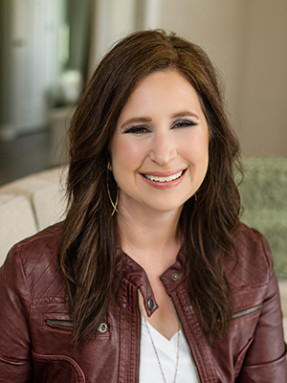Is it time to branch out? Maybe you’re the top producer in your current company or you’ve always had a desire to run your own business. Whatever the reason, starting a brokerage and turning it into a money-making machine is not for the faint of heart, Adorna Carroll—broker-owner of Realty3 CT, a multi-office real estate firm in central Connecticut—told a crowd on Saturday at a session during the REALTORS® Conference & Expo in Boston. Carroll, who’s owned five businesses over her 25 years in the real estate business, said there’s a lot that can go wrong for those who jump in without the proper foresight and education.
Carroll offered these tips for those wanting to go out on their own:
1. Consider your why.
“Determine what’s really driving you to do this,” Carroll said. “You may be able to get a brokerage another way than spending all the money to start your own.” Carroll said starting a brokerage just because you’re a top producer, or because you have a desire to run a company and manage people, is a terrible idea. Carefully consider if you’re really up to the demands, which include everything from recruitment, human resources, training, finances, legal issues, and more. “It’s really hard to run a business and manage people,” she said. “In real estate, you have a lot of competition.” Carroll also noted that many brokerages are consolidating and forming mega companies with abundant resources—do you have a plan for how to compete with them? Would it be a smarter move to lead a team, merge with an existing brokerage, or acquire another entity than start a completely new brokerage?
2. Have a solid business plan.
“You will make money and lose money [starting a real estate brokerage], but you’ll be a hamster on the wheel unless you have a plan,” Carroll said. A business plan needs to be carefully contructed first, before all else, Carroll stressed. It’s your roadmap to what you plan to accomplish and a timeline for doing so. “You need a long-range strategy to how you plan to build your brokerage or you’ll waste a lot of money,” Carroll said. Where do you want to be in the real estate marketplace? What is your value proposition? What will your business be like in five, 10, or 15-plus years?
3. Craft policies and procedures
To avoid legal trouble, you’ll need to have comprehensive policy and procedure manuals for how your brokerage runs—beyond just transactions. A policy procedure manual should cover potential issues regarding online communication, social media use, sexual harassment, advertising, disclosures, commission and fee structures, performance reviews, ethical standards, workplace privacy, and more. “If you’re going to have a company, you better have the right infrastructure in place with your policies,” Carroll said. The Real Estate Business Institute, an affiliate of the National Association of REALTORS®, offers a sample office policy manual as a starting point.
4. Invest in training and education
How will you attract and secure the right talent for your brokerage? “Bad hires can cost you time, effort, and money,” Carroll said, stressing that education and training should be top-of-mind when starting your own brokerage. She pointed to several REALTOR® courses that can help too, like REBI courses such as Creating a Profitable Real Estate Company, The Firm Rules: Policies to Mitigate Risk, and Building a Business Plan That Gets Results. Also, Carroll said that any business partners, team members, or sales associates should undergo training with you. Education is key to avoiding errors, she said, emphasizing the need to be prepared for the leap to running a brokerage: “I’ve made so many costly mistakes because I never paid attention to everything that could go wrong.”




